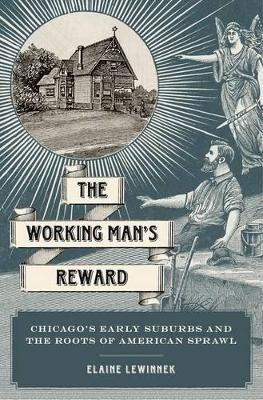Between the 1860s and 1920s, Chicago's working-class immigrants designed the American dream of home-ownership. They imagined homes as small businesses, homes that were simultaneously a consumer-oriented respite from work and a productive space that workers hoped to control. Leapfrogging out of town along with Chicago's assembly-line factories, Chicago's early suburbs were remarkably diverse. These suburbs were marketed with the elusive promise that homeownership
might offer some bulwark against the vicissitudes of industrial capitalism, that homes might be "better than a bank for a poor man," in the words of one evocative advertisement, and "the working man's reward." This promise evolved into what Lewinnek terms "the mortgages of whiteness:" the hope that
property values might increase if that property could be kept white. Suburbs also developed through nineteenth-century notions of the gendered respectability of domesticity, early ideas about city planning and land economics, as well as an evolving twentieth-century discourse about the racial attributes of property values. Because Chicago presented itself as a paradigmatic American city and because numerous Chicago-based experts eventually instituted national real-estate programs, Chicago's
early growth affected the growth of twentieth-century America. Framed by two working-class riots against suburbanization in 1872 and 1919, spurred from both above and below, this work shows how Chicagoans helped form America's urban sprawl and examines the roots of America's suburbanization,
synthesizing the new suburban history into the diversity of America's suburbs.
- ISBN10 0199769222
- ISBN13 9780199769223
- Publish Date 5 June 2014
- Publish Status Active
- Publish Country US
- Imprint Oxford University Press Inc
- Format Hardcover
- Pages 256
- Language English
